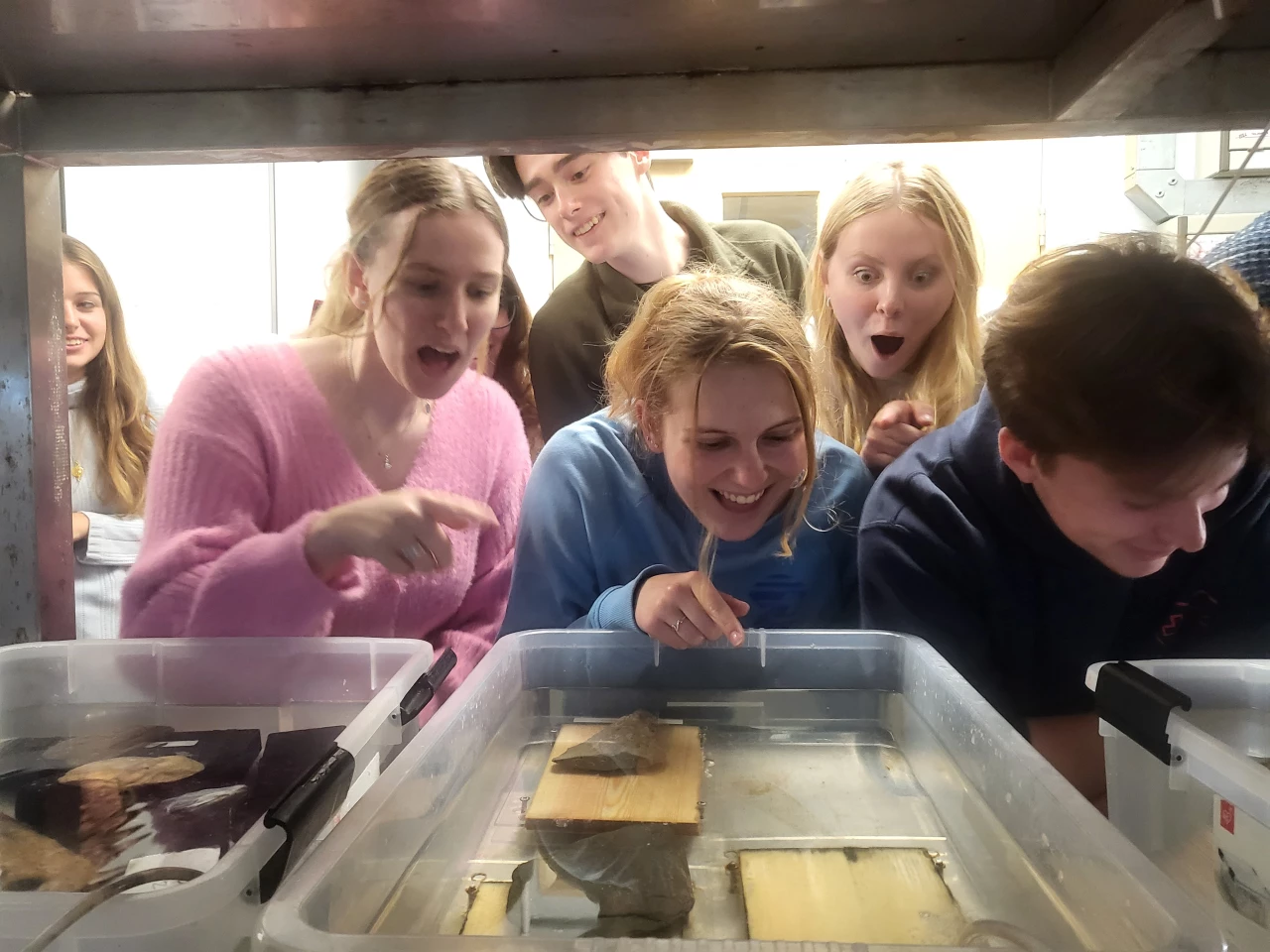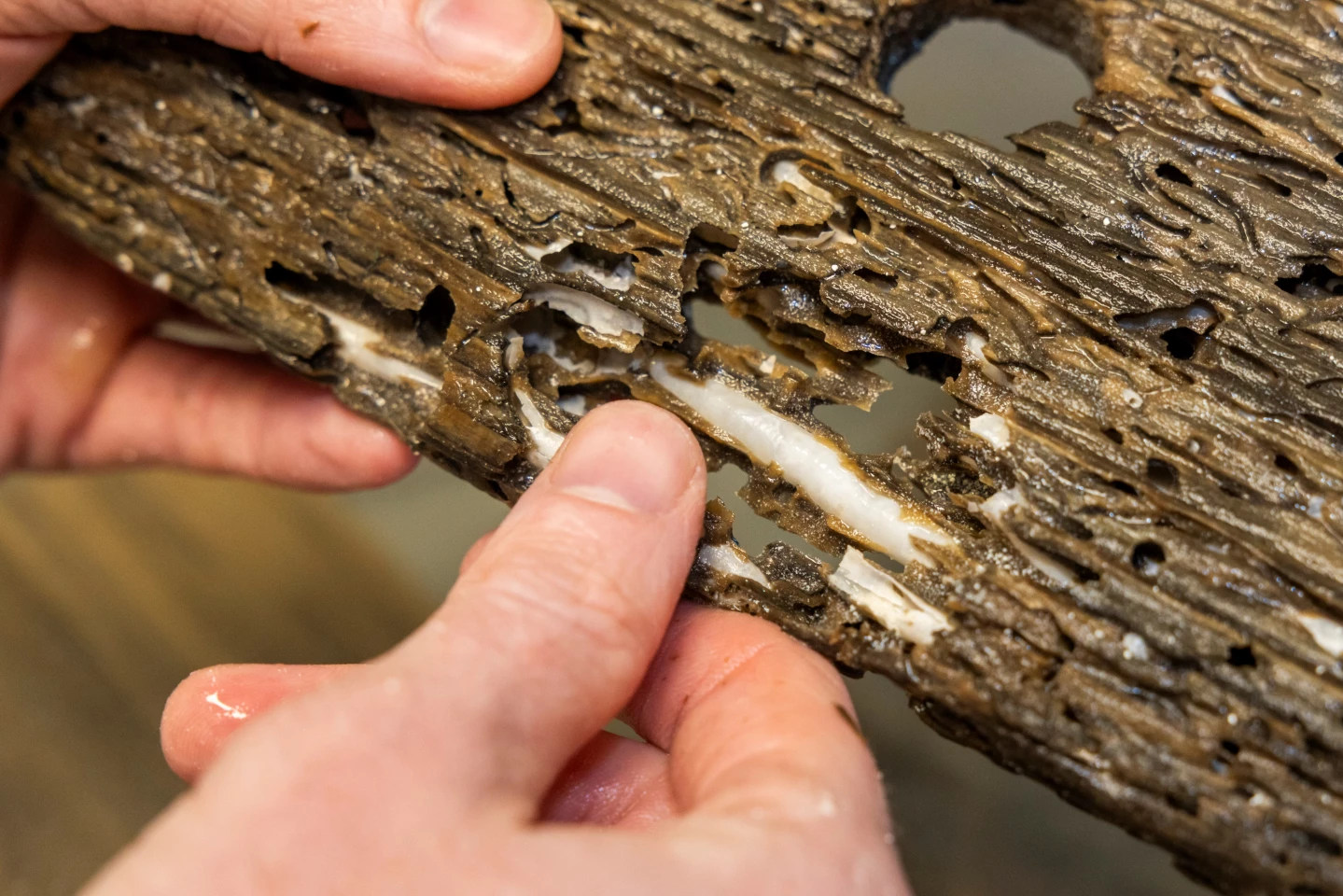For centuries, shipworms have vexed mariners by boring into – and consuming – the hulls of wooden ships and boats. Soon, though, we may actually be eating those "worms," as they have successfully been farmed for the first time.
Scientifically known as teredinids, shipworms are actually a type of bivalve mollusk.
This means they're related to clams, mussels and oysters. Because they spend their lives protected inside the wood that they eat, however, they only have a tiny shell at their front end, where it aids in the wood-boring process.
In the Philippines, shipworms are already wild-harvested and sold as a delicacy. They're said to taste like oysters. According to scientists from the universities of Plymouth and Cambridge, they also contain much more vitamin B12 than most mollusks.
They also grow faster than any other bivalve, due to the fact that they don't have to put much energy into generating their minuscule shell. In just six months, they can reach a length of about 30 cm (12 in). By contrast, mussels and oysters – with their much larger shells – may take up to two years to grow to a harvestable size.
With these attributes in mind, a team led by U Plymouth's Dr. Reuben Shipway and U Cambridge's Dr. David Willer has developed a modular aquaculture system for growing shipworms in locations far from the sea. This means that any waste won't disperse into the surrounding ocean, which is an environmental concern with marine fish farms.

The shipworm farms are made up of multiple salt-water tanks, each one containing a worm-filled panel made of wood which otherwise have been discarded or recycled. And while these tanks are aerated, no water circulation system is necessary.
As an added bonus, if the shipworms' woody diet is augmented with special algae-based pellets, the harvested bivalves are rich in omega-3 polyunsaturated fatty acids.
All of this being said, consumers may still not be wild about eating anything with the word "worm" in its name. For this reason, the scientists plan on marketing the teredinids as "Naked Clams." The researchers also think the bivalves may work best as a fish substitute in processed products like fish fingers or fish cakes, as opposed to being sold as a stand-alone food.

"We urgently need alternative food sources that provide the micronutrient-rich profile of meat and fish but without the environmental cost, and our system offers a sustainable solution," said Shipway. "Switching from eating beef burgers to Naked Clam nuggets may well become a fantastic way to reduce your carbon footprint."
A paper on the study was recently published in the journal Sustainable Agriculture.
Source: University of Plymouth






